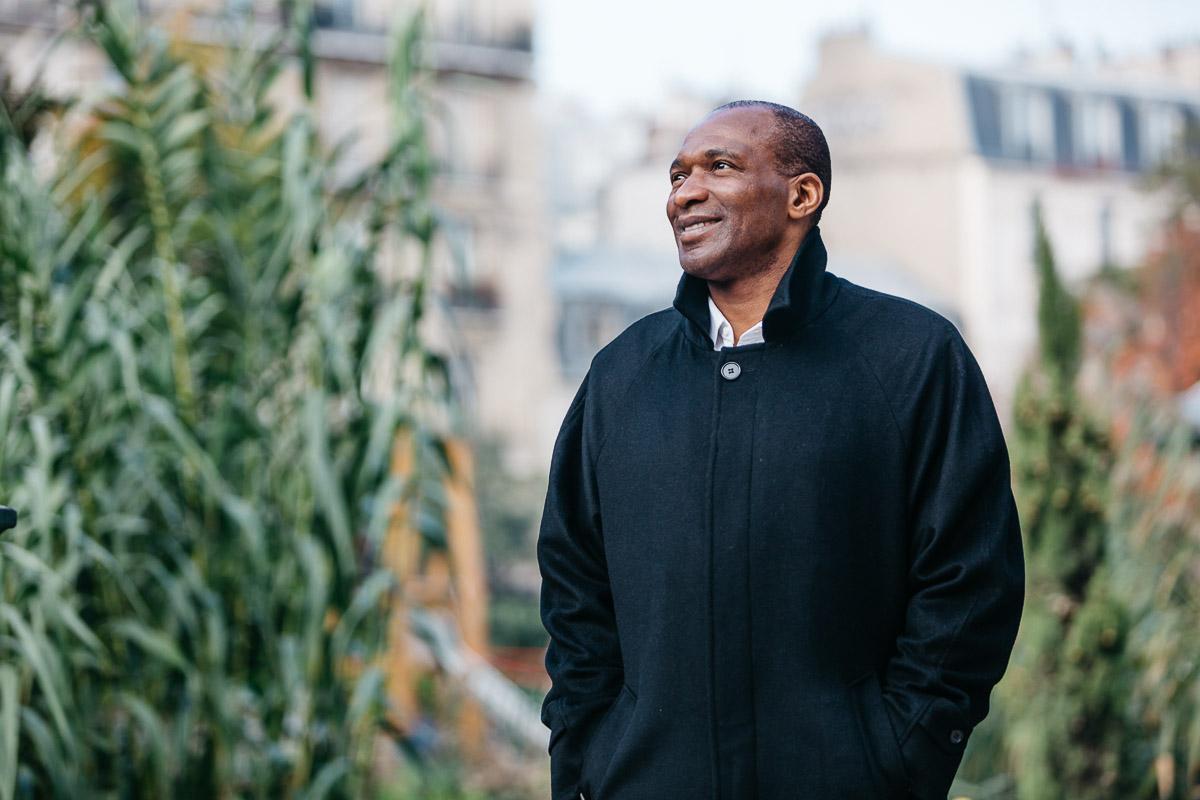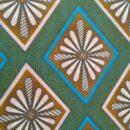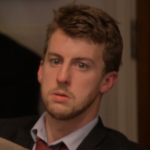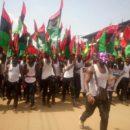Cameroon: What one man’s 17-year ordeal tells us about Biya’s regime

Michel Atangana may be physically free, but like his country, he remains shackled in many ways.

Michel Thierry Atangana spent 17 years in jail in Cameroon based on false accusations.
Michel Thierry Atangana is not a household name, but perhaps he should be. He is a hero and testament to the always fragile but irrepressible human spirit.
Tomorrow, 24 February, marks the four-year anniversary of his release from a maximum-security prison in Cameroon, following a decree issued by President Paul Biya several days prior. In total, Atangana spent 17 years behind bars for a crime he did not commit, much of it in solitary confinement, in a dingy cell where he was subject to routine state-sanctioned torture, and much of it falling outside local and international headlines.
The “official” charge was that Michel had “embezzled public funds”. He was arrested without warrant following false accusations by public officials in Cameroon and, by any measure, exposed to an entirely farcical legal proceeding that took place in an overnight session without the assistance of counsel and without the chance to respond to the charges.
President Biya’s one-man rule
Many familiar with the case agree that Atangana’s detention was due to his alleged support for a well-known political leader who intended to challenge Biya, the man who has ruled Cameroon since 1982 (and effectively since 1975 when he was Prime Minister). Cameroon’s courts have a long-standing reputation of being used as a tool of political retribution and score settling. That fact remains to this day, as does Biya, who ranks among the world’s longest-ruling leaders. Of late, his government has been increasingly accused of massive human rights violations, elevating Cameroon to crisis level in need of a coordinated global response, according to several international NGOs.
The personal tragedy that befell Atangana is indicative of a broader trend of repression, brazen disregard for democratic rights, and a seeming disdain for the principles of equality and justice. These transgressions have pervaded Cameroon over the past several decades – and are arguably getting worse – under Biya’s one-man rule. Moreover, with elections fast approaching this year, many fear a continued downward spiral as the president stands ready to run for a successive seventh term.
Due to the flagrantly egregious nature of Atangana’s case, the United Nations Working Group on Arbitrary Detention, in August 2013, found that his imprisonment was arbitrary and called for his immediate and unconditional release. Cameroon’s government refused to heed this communication.
The UN Working Group also recommended an independent investigation to identify those responsible for the actions taken against Atangana and that they be punished in accordance with domestic law and international legal norms. The report declared that Atangana should be awarded financial damages “for the harm caused by being deprived of personal liberty”.
To this day, Atangana has yet to receive justice. His legal case continues to hang in the balance by an intransigent regime more committed to holding onto power and stifling dissent than ensuring justice and accountability. What is more, as a successful businessman, Atangana’s persecution scared off local and international investors, depressing Cameroon’s economy that has long required revitalisation.
France’s neglect
While the persecution and mistreatment inflicted upon Atangana by Cameroonian authorities was unacceptable, it is also important to underscore the seeming racism at play here. Atangana is a French citizen, and had initially travelled to Cameroon on the recommendation of the French government to assist a so-called “friendly regime” in Cameroon. Yet, when he was accused of a crime he did not commit, France did nothing to elevate his cause, his voice, or his long fight to secure justice. I experienced this obstinacy first-hand while working for Freedom House in 2011, where we had taken the lead in elevating Atagana’s case.
Throughout the entirety of his unjust and arbitrary detention, the government in Paris folded its hands and turned the other way. This tragedy went on for 17 agonising years. The French diplomatic and consular authorities in Cameroon feigned ignorance, pretending to be uninformed about his case, and made misleading statements about his nationality, essentially denying Atangana was a French citizen (an easily disprovable lie).
To this day, we wonder: Would those same French authorities have acted differently if he were not of African origin? One suspects the answer is yes, if only judging by other cases of French citizens who have faced grave injustice abroad, namely: Clotilde Reiss (Iran), Florence Cassez (Mexico), Michaël Blanc (Indonesia), and Serge Atlaoui (Indonesia). There were also those involved in the now infamous Arche de Zoé in Darfur.
Today, would any French or European investor of African descent feel comfortable operating in Cameroon, or a similar place, when knowing of this precedent? I am doubtful.
Cameroon in shackles
Today, Cameroon is again at a crossroads as it was in 1994 when Atangana was imprisoned. As this year’s elections approach – likely to take place by October – the economy continues its free fall, sped up by the regime’s increasingly routine internet shutdowns, costing tens of millions of dollars in potential revenue and related business.
The country’s youth and student populations are lost with little hope for a better future; teachers in some parts of the country have spent equal parts on the streets protesting as they have in the classroom. And human rights violations remain ubiquitous, whether it is the crimes perpetrated against alleged “terrorists” (i.e. journalists and activists) or Anglophone demonstrators. The situation will only get worse if there is not immediate action. In order to stay relevant, to once again become stable and viable, Cameroon must reform.
Atangana’s saga can serve as a useful reference point. Many people are of the view that his case has concluded since he is now a free man. This could not be further from the truth. For one, his personal bank accounts in Europe remain blocked and his assets in Cameroon frozen by authorities.
Much like the country itself, Atangana may be physically free, but he remains confined in many ways. Until President Biya and authorities in Cameroon commit to and then implement long-overdue reforms, including the holding of a genuinely free and fair election this year, much of the country will remain shackled, unable to break the hammerlock of an increasingly retrograde regime. Any reasonable observer will conclude that Cameroon needs an all hands on deck approach to build a truly prosperous political and economic environment, one predicated on a foundation of justice and accountability.
That Atangana miraculously emerged from his 17-year imprisonment unfazed by the ordeal, uninterested in retribution, and undaunted by the trials ahead, offers a glimmer of hope that Cameroon’s citizens are more than capable of meeting this great challenge.







The french are as bad as the Biya regime. They control Paul Biya to steal money and resource from Cameroon and the rest of Africa. France will always fight to keep their dictators in Africa. France has killed more Africans than any other European Country since independence.